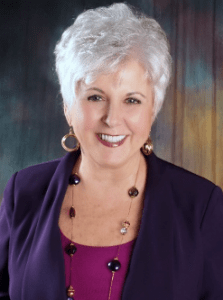Originally published January 2009
New Associates
The success of any associateship or partnership depends greatly on the acceptance of a new member to the practice by the entire dental team. Well-organized, happy, solo practices can go through tumultuous changes that can play havoc on anticipated growth when another person is added to the team. Unknowingly and most often unintentionally, sabotage of these relationships can become apparent before the ink is dry on the agreement.
The Dentist’s View
“My associate has been here for a year. I would have thought by now he would be more productive. My overhead is up, my stress has increased, and I’m not sure this is working.”
The Staff’s View
“We liked our practice the way it was before. We had to give up our Fridays off, our patients are loyal to our senior doctor, and, frankly, we wish we could be a happy work family without this added stress.”
The Consultant’s View
An associate dentist needs the full support of the senior dentist and the entire staff in order to become a passive income center. He or she must be properly introduced to the patients and staff. Sitting down to discuss WHY the practice is bringing in a second dentist is key to the success of the arrangement long-term. What benefit will the associate provide for the patients? What benefit will the associate provide for a healthier business, and finally, what benefit will the associate provide for the senior dentist and staff? Until the “why’s” are identified, the relationship is doomed.
The senior dentist should sit down with the team. The script should go as follows: “Thanks to your dedication and hard work over the years, we have built a patient base that requires another dentist. The benefit to the patients will be more available appointments and additional services. The benefit to the practice will be higher revenues if we support this new dentist in developing a highly successful two-doctor practice. The benefit to me is someone to cover on days I am not here, a colleague to consult with on patient or management issues, and increased net profit for the practice by increased revenues. The benefit for you is additional room for growth in your compensation packages as the practice develops.”
The associate dentist’s ability to produce more revenue depends on scheduling, staffing, and support issues. If the team and senior dentist have feelings of wishing they could go back to “the way things were,” no wonder the associate looks for opportunities elsewhere.
The Dentist’s View
“My associate tends to be one of the staff. She goes to lunch with them and never consults with me in regards to practice issues. I wonder whose side she’s on. I feel like I’m the odd man out. I thought bringing an associate into my practice would be a plus. Now I’m feeling even more left out of my own office.“
The Staff’s View
“Our senior dentist is acting very jealous of the relationship we have with our new associate, Dr. Karen. He gets really mad if he sees one of his patients on her schedule. We are caught in the middle. Why did we bring this second dentist into the practice if our senior dentist can’t share the patients and be happy we like her?”
The Consultant’s View
One of the major problems with interpersonal relationships within a two doctor practice is that the second dentist is typically closer in age to the staff. Staff members often want to confide in the younger dentist about the practice or their senior doctor. This can be the kiss of death to the doctors’ relationship. While it is fine for the associate to go to lunch occasionally with the team, a hard, fast rule must prevail: If the conversation turns into a gripe session, the associate must let the staff know it is totally unfair of the associate to discuss with the team the practice or senior dentist’s faults. The associate needs to offer to arrange a meeting with both doctors and staff to discuss the issues fairly. Likewise, the senior doctor cannot ever discuss faults of the associate with any member of the team. Practice problems should be aired in a group situation. Personal intervention should take place privately.

Linda Miles, speaker, consultant, author, and CEO of Linda Miles, and Associates, is a true pioneer in the field of practice management consulting.

